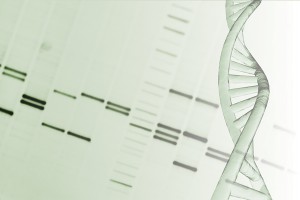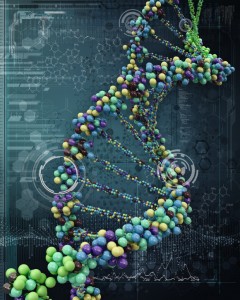DNA Methylation Epigenetics
Are our genes making us fat? Do we inherit chronic skin conditions & hair loss? DNA Methylation Epigenetics Our DNA contains instructions for building all parts of our body. So, although genetic polymorphisms predispose us to developing a certain health condition, epigenetics or how our environment impacts our genes plays a larger role in the development of a chronic condition such as eczema. 1) 2)
- The DNA in our bodies is wrapped around proteins called histones.
- Both the DNA and histones are covered with chemical tags. This second layer or structure is called the Epigenome.
- The epigenome shapes the physical structure of the genome. It tightly wraps inactive genes making them unreadable. It relaxes active genes making them easily accessible.
- Different sets of genes are active in differential types.
- The DNA code remains fixed for life but the epigenome is flexible.
- Epigenetic tags react to signals from the outside world such as diet and stress. The epigenome dynamically responds to the environment. Stress, diet, behavior, toxins, and other factors regulate gene expression.
- The epigenome adjusts specific genes in our genomic landscape that responds to our rapidly changing environment.
Our body is a system, an ecosystem where everything is connected. When that system is out of balance, diseases arises.
Nutrigenomics teaches us how to prevent, treat and reverse almost every chronic illness. Chronic disease include diabetes, high blood pressure, depression, allergies, asthma, IBS, reflux, migraines, acne, low sex drive, fatigue and more.
Disease goes away as a side effect of getting healthy. When we treat the cause or causes with proper understanding of these processes that led to the disease, then we’re going to change. We won’t accept that simply living with certain conditions is acceptable.
Immune Modulation and Chronic Inflammation
Chronic inflammatory disorders such as eczema, acne and psoriasis – skin conditions – are characterised by a hyper responsive immune system. 10 key epigenetic factors must be addressed to regulate and better coordinate our immune response.
1. Blood Sugar instability Blood sugar imbalances cause immune dysfunction and malcoordination. Stable blood sugar is critical for a healthy immune response.
2. Low Vitamin D Levels Individuals with low vitamin D3 levels (below 40 ng/ml) are at significant risk for developing chronic inflammation and allergy-like conditions 3)
3. Gut Dysbiosis Unhealthy microbial imbalance in the gut microbiome leads to leaky gut syndrome and chronic inflammation 4) so we’ve got to address gut issues in order to get well.
4. Mitochondrial Dysfunction The mitochondria are the energy producing organelles in each cell of the body. They are extremely key in the bodies ability to handle oxidative stress. Dysfunction in the mitochondria leads to increased free radical and oxidative stress which creates immune alterations. Low Glutathione Levels. Glutathione is the major antioxidant within every cell of the body. It’s critical for white blood cell (WBC) function as the WBCs encounter tremendous amounts of free radical and oxidative stress every second of the day. Low glutathione leads to chronic inflammation and often to auto-immunity 5).
6. Methylation. Methylation is a key process that protects DNA, turns on and off genetic traits and helps to detoxify environmental chemicals. Many of us individuals have certain genetic polymorphisms that limit their ability to appropriately methylate. Methylation plays a very important role in T cell function and poor methylation status is associated with the development of autoimmunity. Psoriasis is a T cell mediated inflammatory skin disease. 6) Poor Omega 6:3 ratio – the average person has significantly more omega 6 fats than omega 3 fats. The increased omega 6 stimulate the release of pro-inflammatory mediating prostaglandin molecules. This is a key factor in the development of chronic inflammation and skin related disorders 7).
7. Environmental Toxins: Exposure to high levels of infectious microbes, environmental chemicals, pesticides, herbicides, beauty, hygiene and other personal care products, heavy metals and biotoxins e.g. mold. These wear down our body’s glutathione levels, alter the gut microflora and increase inflammatory activity in the body (7, 8, 9).
8. High Stress High mental and emotional stress increases stress hormone production. This changes our posture and the way we breathe, which in turn induces inflammatory activity within the body. Poor posture, breathing and musculoskeletal aches and pain that result can simulate chronic mental and emotional stressors 10)
9. Lack of Sleep Poor quality sleep promotes immune dysfunction and increased inflammation throughout the body. Good sleeping habits and optimal melatonin secretion reduce inflammation and promote improved tissue healing 11).
10. EMF Exposure Electromagnetic frequency exposure has been shown to alter the function of the immune system. Also, its been shown to increase one’s susceptability to developing an auto-immune condition 12)




